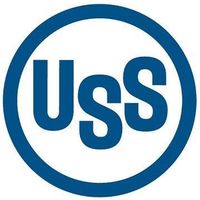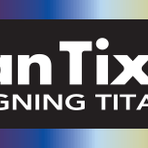Steel Giants Clash: Nippon Steel's Bold Move on U.S. Steel
September 5, 2024, 4:39 am

Location: United States, Pennsylvania, Pittsburgh
Employees: 10001+
Founded date: 1901
Total raised: $240M
In the world of steel, giants clash. Nippon Steel, Japan's largest steelmaker, is eyeing a significant acquisition: U.S. Steel. This $15 billion deal has stirred the pot, raising questions about ownership and national identity. The stakes are high, and the implications are vast.
Nippon Steel has made a bold promise. If the acquisition goes through, the core management and a majority of the board members at U.S. Steel will be U.S. citizens. This move is a strategic play to ease concerns from American politicians and labor unions. It’s a bid to show that the heart of U.S. Steel will remain American, even under foreign ownership.
The announcement comes amid rising scrutiny. Democratic presidential candidate Kamala Harris has echoed President Biden's sentiments. They both express a clear message: U.S. Steel should remain American-owned and operated. The political landscape is shifting, and Nippon Steel is keenly aware of the need for support.
To bolster its position, Nippon Steel has enlisted the help of former U.S. Secretary of State Mike Pompeo as an advisor. This is not just a nod to political influence; it’s a calculated move to navigate the complex waters of American corporate governance. Pompeo’s involvement signals seriousness. It shows that Nippon Steel is committed to integrating into the American business fabric.
But the deal is not just about management. Nippon Steel has unveiled plans to invest an additional $1.3 billion in U.S. Steel's mills. This investment is a lifeline. It promises to enhance operations and secure jobs. For labor unions, this is a crucial factor. They want assurances that jobs will not just be preserved but also expanded.
Takahiro Mori, Nippon Steel's Vice Chairman, is at the forefront of negotiations. He plans to visit the U.S. this month to continue discussions. His mission is clear: to solidify relationships and gain trust. However, specifics about his meetings remain under wraps. This secrecy adds an air of intrigue to the negotiations.
The acquisition hinges on regulatory approvals. Both companies aim to close the deal by the end of the year. This timeline is ambitious. It reflects the urgency felt by both parties. They know that delays could jeopardize the entire venture.
Nippon Steel's commitment to American leadership within U.S. Steel is a double-edged sword. On one hand, it addresses concerns about foreign control. On the other, it raises questions about the future of American steel production. Will this acquisition lead to innovation and growth, or will it stifle competition?
The steel industry is a cornerstone of the American economy. It employs thousands and supports countless jobs. Any shift in ownership can send ripples through the market. U.S. Steel has a storied history. It has weathered storms and emerged resilient. But this acquisition poses a new challenge.
Nippon Steel’s strategy is not without risks. The political climate is volatile. Public sentiment can shift rapidly. If American workers feel threatened, backlash could ensue. Nippon Steel must tread carefully. It needs to balance corporate interests with community concerns.
The broader implications of this deal extend beyond steel. It touches on issues of globalization and national identity. As companies cross borders, questions arise about loyalty and ownership. What does it mean to be an American company in a globalized world? This acquisition may redefine those boundaries.
In the past, foreign acquisitions have faced hurdles. Companies have struggled to integrate into the American market. Cultural differences can create friction. Nippon Steel must navigate these waters skillfully. It must demonstrate that it values American workers and the American way of business.
As the clock ticks down to the end of the year, all eyes will be on this deal. Will it pave the way for a new era in steel production? Or will it spark a backlash that halts progress? The outcome remains uncertain.
In conclusion, Nippon Steel's bid for U.S. Steel is a high-stakes game. It’s a chess match with global implications. The promise of American leadership within U.S. Steel is a strategic move. It aims to quell fears and secure support. But the path ahead is fraught with challenges. The steel industry stands at a crossroads. The decisions made today will shape its future for years to come. As the giants clash, the world watches closely.
Nippon Steel has made a bold promise. If the acquisition goes through, the core management and a majority of the board members at U.S. Steel will be U.S. citizens. This move is a strategic play to ease concerns from American politicians and labor unions. It’s a bid to show that the heart of U.S. Steel will remain American, even under foreign ownership.
The announcement comes amid rising scrutiny. Democratic presidential candidate Kamala Harris has echoed President Biden's sentiments. They both express a clear message: U.S. Steel should remain American-owned and operated. The political landscape is shifting, and Nippon Steel is keenly aware of the need for support.
To bolster its position, Nippon Steel has enlisted the help of former U.S. Secretary of State Mike Pompeo as an advisor. This is not just a nod to political influence; it’s a calculated move to navigate the complex waters of American corporate governance. Pompeo’s involvement signals seriousness. It shows that Nippon Steel is committed to integrating into the American business fabric.
But the deal is not just about management. Nippon Steel has unveiled plans to invest an additional $1.3 billion in U.S. Steel's mills. This investment is a lifeline. It promises to enhance operations and secure jobs. For labor unions, this is a crucial factor. They want assurances that jobs will not just be preserved but also expanded.
Takahiro Mori, Nippon Steel's Vice Chairman, is at the forefront of negotiations. He plans to visit the U.S. this month to continue discussions. His mission is clear: to solidify relationships and gain trust. However, specifics about his meetings remain under wraps. This secrecy adds an air of intrigue to the negotiations.
The acquisition hinges on regulatory approvals. Both companies aim to close the deal by the end of the year. This timeline is ambitious. It reflects the urgency felt by both parties. They know that delays could jeopardize the entire venture.
Nippon Steel's commitment to American leadership within U.S. Steel is a double-edged sword. On one hand, it addresses concerns about foreign control. On the other, it raises questions about the future of American steel production. Will this acquisition lead to innovation and growth, or will it stifle competition?
The steel industry is a cornerstone of the American economy. It employs thousands and supports countless jobs. Any shift in ownership can send ripples through the market. U.S. Steel has a storied history. It has weathered storms and emerged resilient. But this acquisition poses a new challenge.
Nippon Steel’s strategy is not without risks. The political climate is volatile. Public sentiment can shift rapidly. If American workers feel threatened, backlash could ensue. Nippon Steel must tread carefully. It needs to balance corporate interests with community concerns.
The broader implications of this deal extend beyond steel. It touches on issues of globalization and national identity. As companies cross borders, questions arise about loyalty and ownership. What does it mean to be an American company in a globalized world? This acquisition may redefine those boundaries.
In the past, foreign acquisitions have faced hurdles. Companies have struggled to integrate into the American market. Cultural differences can create friction. Nippon Steel must navigate these waters skillfully. It must demonstrate that it values American workers and the American way of business.
As the clock ticks down to the end of the year, all eyes will be on this deal. Will it pave the way for a new era in steel production? Or will it spark a backlash that halts progress? The outcome remains uncertain.
In conclusion, Nippon Steel's bid for U.S. Steel is a high-stakes game. It’s a chess match with global implications. The promise of American leadership within U.S. Steel is a strategic move. It aims to quell fears and secure support. But the path ahead is fraught with challenges. The steel industry stands at a crossroads. The decisions made today will shape its future for years to come. As the giants clash, the world watches closely.
